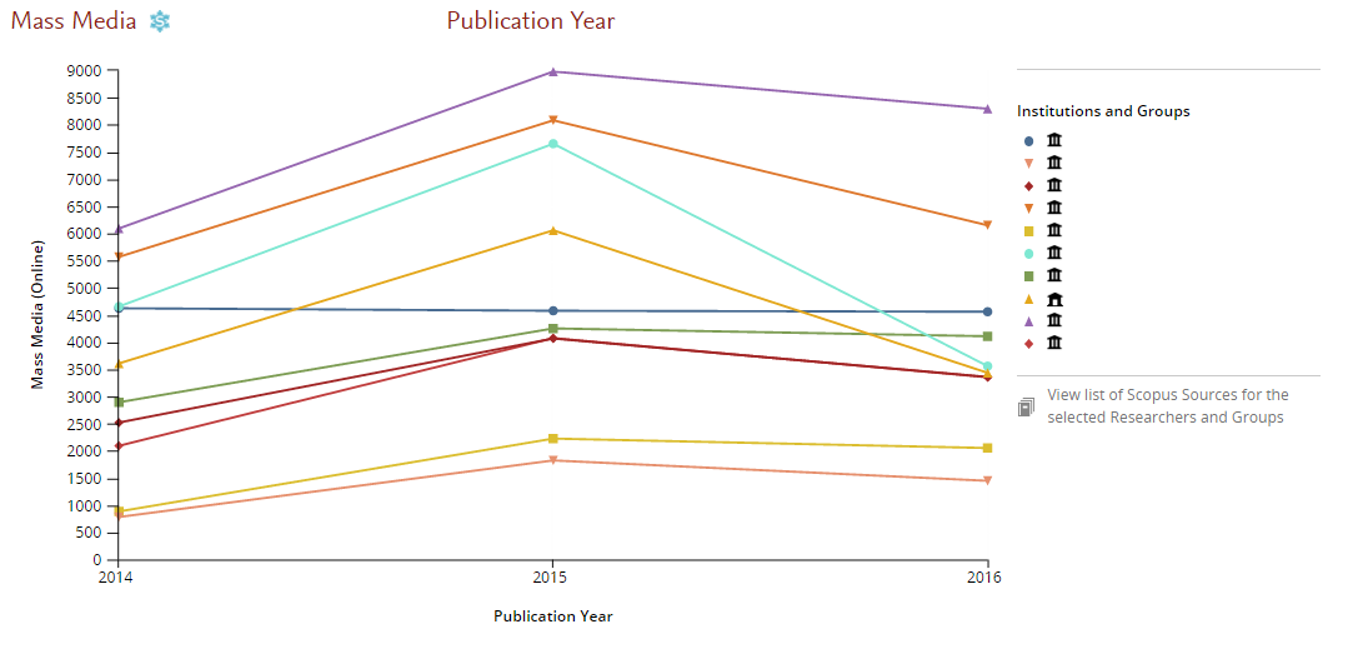A new release of SciVal, the research intelligence tool from Elsevier, was launched in mid-November.
The tool now features two additional sources of information that can be mined: Awarded Grants and Mass Media Mentions. This post covers the Mass Media Mentions and how you can make the best use of this data. An earlier post covered the Awarded Grants feature.
The societal impact of an institution can now be measured in SciVal via mass media mentions of its research outputs. SciVal tracks only English-speaking media sources at present and covers 39,000 online sources and 6,000 print sources. The data cover 2 full years plus the current year for online sources and 5 full years and the current year for print sources. Currently, most of the media sources being tracked are based in the USA and so this should be borne in mind when looking at the data for a particular institution.
Overview module

Image from SciVal (redacted)
To look at mass media mentions for an institution, use the ‘Societal Impact’ tab in the Overview module in SciVal. Use the button to choose which kind of media type you are interested in. You can also use the subject filter to narrow down your search to a particular area of research.

Image from SciVal (redacted)
You can also get a breakdown of the kind of media sources that picked up the research and whether they were internationally recognised (eg. BBC) or a local interest source. Below is an example of a Media Exposure graph.
There is also a field-weighted graph that makes comparisons of institutions in the same country possible regardless of their subject areas (medical research is often picked up by the media more than other subjects).
Benchmarking against other institutions

Use the Benchmarking module to compare media mentions between institutions in the same country (image from SciVal, redacted)
The data can also be displayed in a table format and downloaded as a PDF, image file or CSV file.
It is anticipated that links to the media mentions will be added in early 2017.
Further information
SciVal is available for all users at the University of Reading. You have to register for an account to use the tool. Access is only available when on campus (or using the VPN). For help and support with SciVal and to gain access to Reading University’s customised structures, contact the Research Publications Adviser.

 RSS - Posts
RSS - Posts